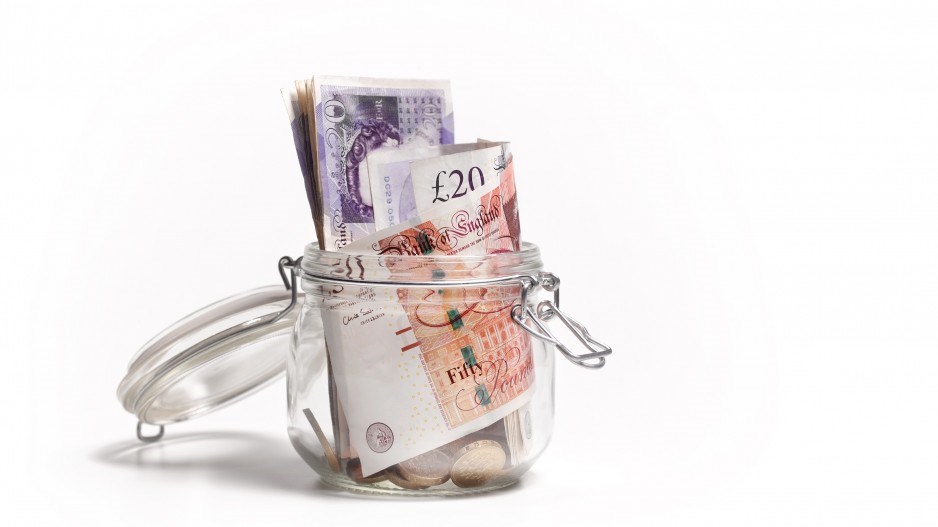British Columbians who have returned from vacation and stashed paper U.K. £20 and £50 banknotes for a future trip would be wise to convert their currency into Canadian dollars before those bills stop being accepted.
The Bank of England said in June that those denominations of paper money will not be legal tender after Sept. 30.
Since 2016, the U.K. has been converting its banknotes to a polymer material in order to make counterfeiting more challenging. Its £5 note stopped being legal tender in May 2017, with the £10 banknote no longer being legal tender as of March 2018. The U.K. only has those four denominations of polymer currency.
While the majority of paper £20 and £50 banknotes in circulation have already been replaced with new polymer versions, there are in circulation more than £6 billion worth of paper £20 banknotes, featuring economist Adam Smith, and more than £8 billion worth of paper £50 banknotes, featuring engineers Matthew Boulton and James Watt, according to the Bank of England.
That’s more than 300 million individual £20 banknotes, and 160 million paper £50 banknotes, the bank said.
Once banknotes stop being designated as legal tender, businesses and financial institutions are no longer required to accept them.
Some financial institutions plan to keep accepting the bills even after they stop being legal tender, as long as those banks and credit unions' foreign-exchange partners also keep accepting the bills.
Vancity's vice-president of operations and compliance in its member experience and community engagement division, Jindy Bains, told BIV that her credit union will continue to accept all denominations of paper U.K. currency into October, and beyond.
"The foreign-exchange partners that we work with have indicated to us that there will be no change for our members," Bains said. "We're not going to leave our members stranded."
She said that Vancity only provides foreign-exchange services to its members so if a person does not have an account at Vancity, they will not be able to convert foreign currency into Canadian dollars.
BIV last week asked the Royal Bank of Canada and the Toronto Dominion Bank what their policies would be for accepting paper U.K. banknotes but those institutions were not able to provide answers by deadline.
Bains urged anyone who has paper U.K. banknotes to cash them in as soon as possible because it is possible that her financial institution's policy will change. She also suggested that non-Vancity members be in touch with their financial institutions.




